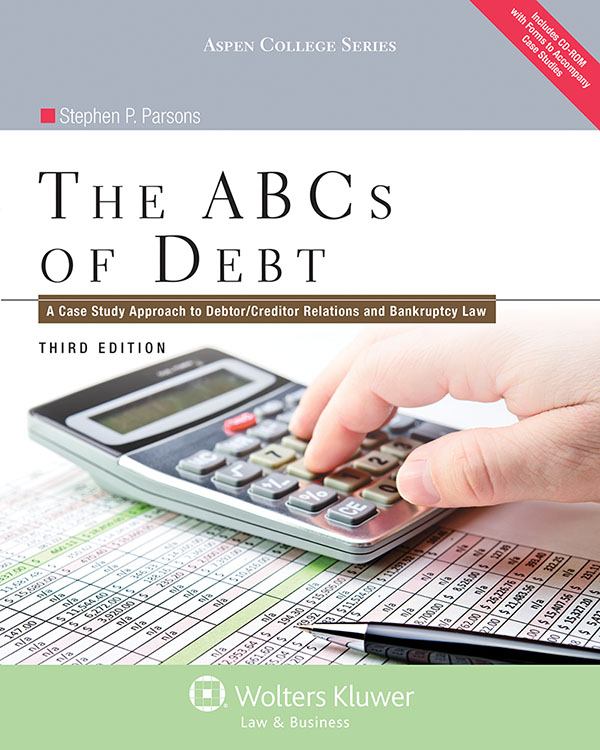
Book Specs
Binding
Trade Paper
Publisher
Wolters Kluwer Law & Business
Published on
Sep 6, 2013
Edition
3rd Edition
Dimensions
8.00x1.50x9.75 Inches
Weight
3.15 Pounds
About the Book
ABC's of Debt: A Case Study Approach to Debtor/Creditor Relations and Bankruptcy Law, Third Edition with CDPractical paralegal text that covers the basics of bankruptcy practice, debt creation, secured transactions, the law of liens, and debt collection practices.
Features of The ABCs of Debt:
- Completely up-to-date coverage of both bankruptcy law and the related topics of debt creation, debt collection, and the discharge or reorganization of debt in bankruptcy.
- Debt creation and debt collection are covered in detail before addressing bankruptcy, putting the entire debtor/creditor relationship into a broader, more realistic context.
- Bankruptcy law is presented in a clear, readable format that focuses on the main concepts rather than the minutia of the law. The bankruptcy process is addressed sequentially, as it arises in actual cases, rather than piecemeal.
- Not only teaches students about the law but also how to apply the law. By stressing the how-to of debtor/creditor law, this text provides the student that critical bridge between simply knowing about a subject and being able to function as a paralegal in the office where debtor-creditor work is done.
- In addition to examples and forms, Parsons uses realistic case studies to enable students to apply the knowledge and skills they are learning. Forms for use with these case studies included on a CD with the book.
- The text provides a step-by-step instruction for completing a bankruptcy petition and the challenging OBF 22A for the Chapter 7 means test and OBF 22C for the Chapter 13 determination of commitment period and projected disposable income.
- Helpful pedagogy includes:
- Forms and illustrations
- Examples
- Case excerpts and summaries
- Learn-by-doing exercises
- Problems/Hypotheticals
- Ethical queries
- Key terms/marginal definitions
- Review questions
